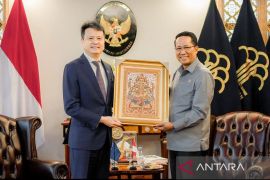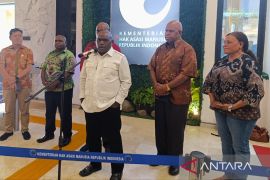Arbitral Tribunal Condemns China’s “9-Dash Line†And Upholds the
Philippines’ Maritime Rights
WASHINGTON--(Antara/BUSINESS WIRE)-- An international arbitral tribunal today unanimously upheld the Philippines’ claims in a much-watched arbitration against China. The Tribunal rejected China’s claim to “historic rights†in the maritime areas encompassed by its so-called “nine-dashed line†as inconsistent with the U.N. Convention on the Law of the Sea.
The case had captured global attention because it involves critical issues relating to China’s expansive claims over some 90% of the South China Sea, an area of major strategic importance through which over 50% of the world’s commercial shipping passes each year.
Foley Hoag LLP partners Paul Reichler, Lawrence Martin and Andrew Loewenstein led the Philippines’ legal team.
“This historic decision not only vindicates the Philippines’ claims, it provides much-needed clarity concerning the Parties’ legal rights and obligations under the Law of the Sea Convention to which they and more than 180 other States are signatories,†said Reichler.
“The Tribunal’s ruling not only benefits the Philippines, it also benefits other States bordering the South China Sea like Indonesia, Malaysia and Vietnam,†Reichler added. “If China’s nine-dash line is invalid as to the Philippines, it is equally invalid to those States and, indeed, the rest of the international community.â€
The five-member arbitral tribunal was convened in 2013 pursuant to the terms of Annex VII to the Law of the Sea Convention. It was comprised of some of the world’s leading authorities on the law of the sea and presided over by Mr. Thomas Mensah of Ghana, a former President of the International Tribunal for the Law of the Sea in Hamburg, Germany. It also included three of the sitting judges on that court (from France, Germany and Poland), and the former director of the Netherlands Institute for the Law of the Sea.
“This was, beyond doubt, the most pre-eminent and well respected panel of arbitrators to sit in a Law of the Sea case,†said Reichler, “and we (Foley Hoag) have been involved in almost all of them.â€
The Philippines initiated the arbitration In January 2013, after China claimed exclusive rights over 90% of the South China Sea’s waters and seabed, and all of its resources, and refused to allow the Philippines to fish or explore for oil even in areas close to the Philippine coast. China claimed exclusive rights and jurisdiction within its so-called nine-dash line, which all neighboring States have protested, and no State besides China recognizes.
The Philippines also sought determinations that China had unlawfully interfered with the Philippines’ sovereign rights and jurisdiction in its exclusive economic zone and continental shelf within 200 nautical miles of its coasts; that no features in the South China Sea generate maritime entitlements beyond a 12 nautical mile territorial sea; and that China’s island building activities in the area have caused massive environmental harm in violation of the provisions of the Convention on protection of the marine environment.
China refused to formally participate in the proceedings. The Tribunal nevertheless moved forward with the case. The relevant provisions of the Law of the Sea Convention—to which China agreed when it ratified the Convention in 1996—expressly state that all Parties consent to binding arbitration of disputes arising under the Convention, and that proceedings may continue even when one party fails to appear.
The Tribunal’s ruling upheld the Philippines’ claims in all critical respects. Specifically, it determined that China’s maritime entitlements in South China Sea, like those of the Philippines and other States, cannot extend beyond the clear limits stated in the Law of the Sea Convention. It also determined that China’s claim to “historic rights†in the areas of the South China Sea encompassed by its nine-dash line is contrary to the Convention and therefore unlawful.
“The Tribunal’s decision on China’s nine-dash line is truly historic. Equally important is the Tribunal’s ruling on the marine environment. This is the first time that an international court or tribunal has put teeth in the Convention’s provisions relating to environmental protection,†said Foley Hoag’s Lawrence Martin. “States should be on notice that they can expect to be held to their obligation to protect and preserve the marine environment in the world’s oceans and seas.â€
The Philippines’ victory owes much to former President Begnino Aquino III and his Secretary of Foreign Affairs, Ambassador Albert del Rosario, under whose leadership the case was brought and successfully prosecuted. In addition to Foley Hoag LLP, the Philippines was represented by Professor Bernard Oxman of the University of Miami, Professor Philippe Sands QC of University College London and Professor Alan Boyle of the University of Edinburgh.
A fact sheet on the case can be found here.
View source version on businesswire.com: http://www.businesswire.com/news/home/20160712005801/en/
Contacts
Foley Hoag LLP
Audra Callanan
acallanan@foleyhoag.com
Source: Foley Hoag LLP
Reporter: PR Wire
Editor: PR Wire
Copyright © ANTARA 2016











